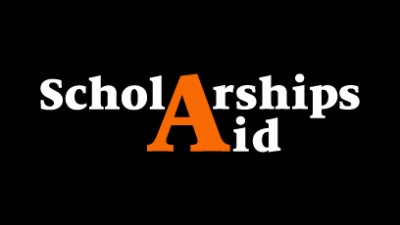
Julie Kolgjini
Principal Lecturer, American University in Kosovo
University Studies
Academic Affairs
Julie Kolgjini
Principal Lecturer, American University in Kosovo
University Studies
Academic Affairs
Select Scholarship
Journal Paper
Kolgjini, Julie. "Translingual Writing: The Re-emergence of an Invisibilized Variety." Journal für Schreibwissenschaft 25. 1 (2023): 70-78. Web.
Published Conference Proceedings
Kolgjini, Julie. "An (Un)fettered Albanian Language in the Post-modern Age: Taking a Glance at the Contributions of Janet Byron in Light of Revisiting the Current Standard." Proceedings of the 4th International Conference on Foreign Language Teaching and Applied Linguistics (FLTAL14) and International Forum on Cognitive Linguistics. Theme: Linguistics, Culture, and Identity in Foreign Language Education. Ed. International Burch University. Sarajevo, Bosnia-Herzegovina: Cambridge Scholars Publishing, Print.
Kolgjini, Julie. "Për (ç)pengimin e Gjuhës Shqipe në Kohën Post-moderne: Marrë Shkas Nga Kontributi i Janet Byron-it në Dritën e Rishqyrtimit të Standardit Actual." Proceedings of the Seminari XXXII Ndërkombëtar për Gjuhën, Letërsinë dhe Kulturën Shqiptare [The 32nd International Seminar on Albanian Language, Literature and Culture]. Ed. Bardh Rugova. Prishtina, Kosova: Faculty of Philology University of Prishtina and Faculty of History and Philology University of Tirana, 2014. Print.
Kolgjini, Julie. "Nxënja e dy gjuhëve si gjuhë e parë si dhe divergjenca, konvergjenca dhe inovacionet gjuhësore: Shqip dhe anglisht." Proceedings of the Seminari XXXI Ndërkombëtar për Gjuhën, Letërsinë dhe Kulturën Shqiptare [The 31st International Seminar on Albanian Language, Literature and Culture]. Ed. Bardh Rugova. Prishtina, Kosova: Faculty of Philology University of Prishtina and Faculty of History and Philology University of Tirana, 2013. Print.
Kolgjini, Julie. "Rishfaqja e një arkaizmi: Ndikimi prej një gjuhe të arealit ballkanik." Proceedings of the Shqipja dhe Gjuhët e Ballkanit [Albanian and the Languages of the Balkans]. Ed. Rexhep Ismajli. Pristhina, Kosova: Academy of Sciences and Arts of Kosova, 2012. Print.
Kolgjini, Julie. "Perspektivë sociolinguistike e devijimeve gjuhësore në gjuhën shqipe: Ndërrimi i kodeve dhe mbikorrigjimet." Proceedings of the Seminari XXX Ndërkombëtar për Gjuhën, Letërsinë dhe Kulturën Shqiptare [The 30th International Seminar on Albanian Language, Literature and Culture]. Ed. Bardh Rugova. Prishtina, Kosova: Faculty of Philology University of Prishtina and Faculty of History and Philology University of Tirana, 2012. Print.
Kolgjini, Julie. "Mundësia e përdorimit të paskajores në standardin e gjuhës shqipe." Proceedings of the Konferencë Shkencore - Shqipja në etapën e sotme: politikat e përmirësimit dhe të pasurimit të standardit. Ed. Qendra e Studimeve Albanologjike. Tirana, Albania: Qendra e Studimeve Albanologjike: Instituti i Gjuhësisë dhe Letërsisë, 2011. Print.
Invited Keynote/Presentation
Kolgjini, Julie. "Nji Turbullim Estetik i Ideologjisë së Gjuhës Standarde: Miftar Spahija (Thaçi)." Scientific Conference in Commemoration of the 100th Anniversary of Miftar Spahija (Thaçi). National Museum of Albania. Tirana, Albania. 15 Nov. 2014. Conference Presentation.
Kolgjini, Julie. "An Exploration of Effective Strategies for Academic Writing: A Peer-to-peer E-learning Approach to the Flipped Classroom." A.U.K Media Center Workshop for First-year Writing Students. A.U.K. Prishtina, Kosova. 30 Jan. 2014. Conference Presentation.
Kolgjini, Julie. "Improving the Writing Skills and Research Skills for Higher Quality Scientific Papers." Workshop: Iliria International Review. Iliria University. Prishtina, Kosova. 31 Jan. 2014. Keynote Speech.
Currently Teaching
ENGL-260
Written Argument
3 Credits
This course is a rigorous introduction to the formal study of rhetoric. Often defined as the “art of persuasion,” rhetoric helps us understand the complexities of marshaling others to see, believe and act in particular ways. Reading a range of rhetorical theory—from the ancient to the contemporary—students will investigate how language is used to create meaning, construct identity, organize social groups, and produce change. Because argument and persuasion inherently involve ethical questions of power, students will also consider who and what benefits or is marginalized by particular assumptions, claims and practices. The course emphasizes cultural rhetoric and rhetorical genre theory to ask what different types of texts do, what cultural role they play in shaping knowledge, and what ideologies they embody. Students will analyze the rhetoric observed in a range of media—academic research, public communication, digital material, data visualization—and compose arguments, identifying assumptions, misinformation/disinformation, and counter arguments. Students engage with rhetorical theory to pose complex questions about important social issues, consider the discursive requirements of the moment, and write intentionally for a target audience.
LING-214
Introduction to Linguistics
3 Credits
This course introduces students to linguistics, which is the scientific study of human languages. Students will be introduced to core linguistic disciplines (phonetics, phonology, morphology, syntax, semantics, and pragmatics) and to principles and methods of linguistics through discussion and the analysis of a wide range of linguistic data based on current linguistic models. English will often serve as the reference language, but we will discuss a wide variety of languages, including sign languages, to illustrate core concepts in linguistics. The course will have relevance to other disciplines in the liberal arts and sciences as well as technical fields. Students will critically study human languages through discussions of the origins of languages, how languages are acquired, their organization in the brain, and languages' socio-cultural roles. Some other topics that will be introduced are: language endangerment, language and computers, and artificially constructed languages in the film or fiction industry.
LING-356
Meaning in Language
3 Credits
In this course, students will learn about linguistic methods for characterizing meaning considering words, sentences, conversation, and language in situational contexts. The class will examine these topics in English and across languages and cultures, studying different linguistic frameworks for describing meaning, including debates among them. We will explore the link between verbal and non-verbal semantics, and apply systematic meaning description and analysis to literary production, advertising, clinical interactions, entertainment, and digital media discourse.










